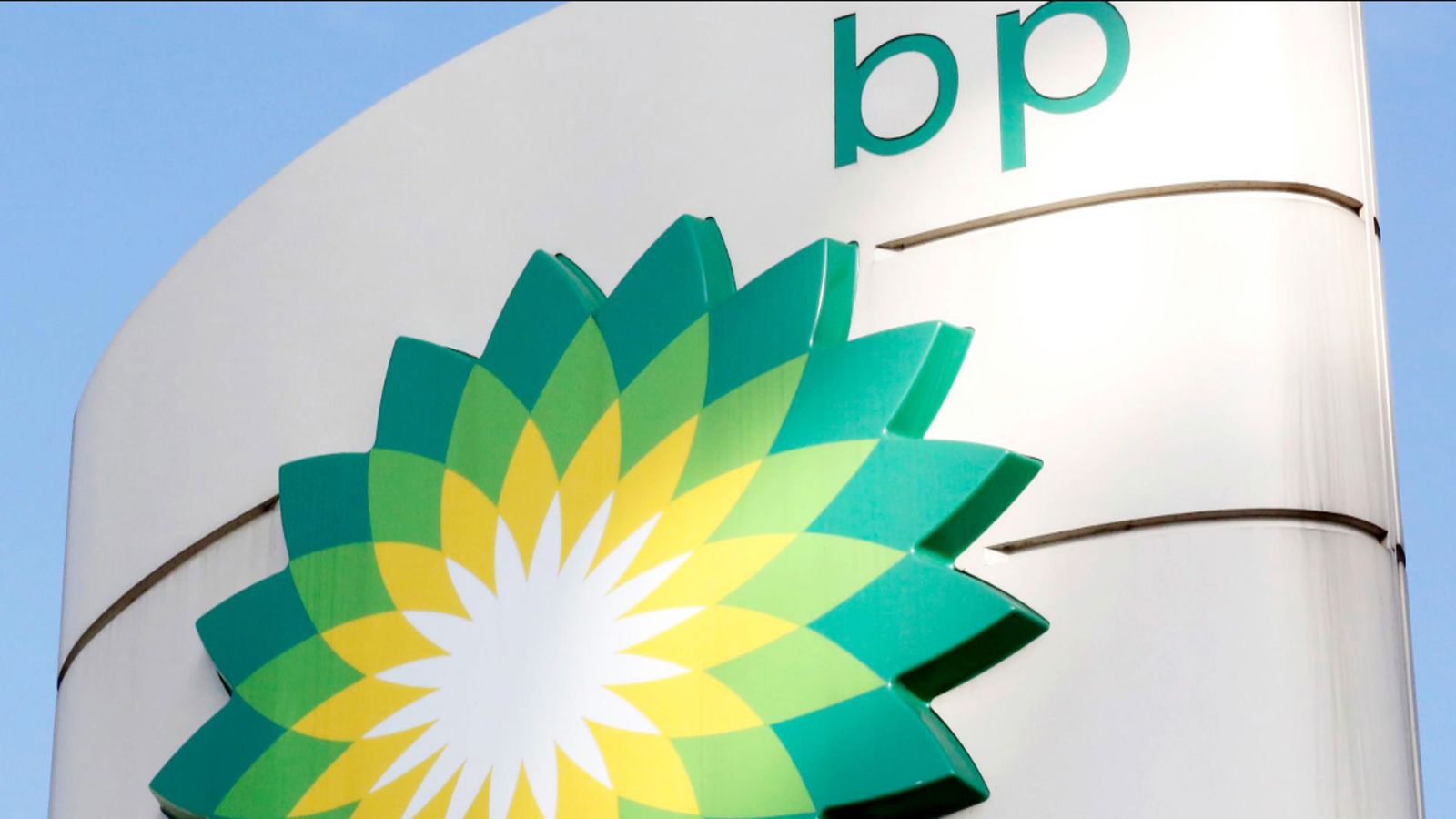BP to miss key climate target as annual profits hit record £23bn

BP has revealed it is to miss a key climate goal while announcing record annual profits.
The London-based firm said its main measure, underlying replacement cost profit, came in at $27.7bn (£23bn) for 2022.
That is more than double the previous year’s sum despite weaker oil and gas costs knocking its performance in the final quarter.
BP admitted, alongside the figures, that it now expects carbon emissions from its oil and gas production to fall by between 20-30% by 2030 when compared to 2019 levels.
Its previous target had been a 35-40% drop in emissions.
It blamed the move on anticipated higher levels of output to meet global needs – a shift that was slammed by climate campaigners including Greenpeace which called for government intervention.
Chief executive Bernard Looney revealed £6.6bn of additional investment in energy transition projects and a further £6.6bn for oil and gas to meet energy security demands.
The earnings figures further inflamed the debate on whether big oil and gas firms should be handing more back through windfall taxes amid the energy-driven cost of living crisis.
It comes just days after Shell’s reported profits of £32.2bn.
Advertisement
Both firms suffered big losses during 2020 as the COVID pandemic hammered energy costs due to a lack of demand.
But the recovery in oil and gas prices since – latterly guided by Russia’s war in Ukraine – has prompted national governments including the UK to impose windfall taxes on the sector.
Domestic critics, including unions, climate groups and Labour, want additional clawbacks.
Please use Chrome browser for a more accessible video player
5:54
‘These are the windfalls of war’
They argue energy firms’ earnings have been gained at the expense of wider society because wholesale prices have caused decades-high inflation and left households and businesses nursing record bills on many fronts.
Chancellor Jeremy Hunt’s autumn statement last November had raised the energy profits levy on UK extraction activities to 35% from 25%, as the government sought to recover more on the back of its continuing energy bill support.
It left the effective tax rate at 75% because of the 40% corporation tax charge already applied, though some investment relief is granted under the levy.
Despite that hit, energy company dividends have continued to rise on the wider, more substantial earnings. BP raised its award by 10% helping its share price rise by 4%.
That is all welcome news for pension values as the vast majority of funds are obliged to hold top tier stocks.
Shareholders have been further rewarded through share buy-backs. BP said it would repurchase $2.75bn of shares over the next three months after buying $11.7bn in 2022.
Shell said last week that it expected to pay around £100m under the levy’s rules for its UK offshore activities last year – taking its global windfall tax bill to almost £2bn.
Its total global tax contribution was £10.8bn.
Read more:
Postal strike called off after legal challenge from Royal Mail
Consumer spending still below inflation but cinema and travel outlays buck the trend
Britcoin digital pound decision due by 2025
BP had earlier forecast a 2022 UK windfall tax sum of around £678m but its results statement suggested a tax effect of £1.8bn.
The UK’s largest producer of oil and gas in the North Sea, Harbour Energy, blamed the impact of the levy for a decision last month to cut jobs.
It is expected to reveal the figure payable to the Treasury next month having warned investors in January that the sum would be materially higher than expected at the time of its half year results.
Harbour has said that the increase to the levy had forced it to review its North Sea activities at a time when the country badly needed domestic supplies to bolster energy security.
Responding to BP’s figures, Labour’s Ed Miliband demanded the government go further.
“In just eight weeks’ time, the government plans to allow the energy price cap to rise to £3,000. Labour would use a proper windfall tax to stop prices going up in April.
“When it comes to oil and gas interests, Rishi Sunak is too weak to stand up for the British people. Only Labour is on your side – with a plan to tackle the cost of living crisis now, and a long term plan to cut bills for good and make Britain a clean energy superpower.”